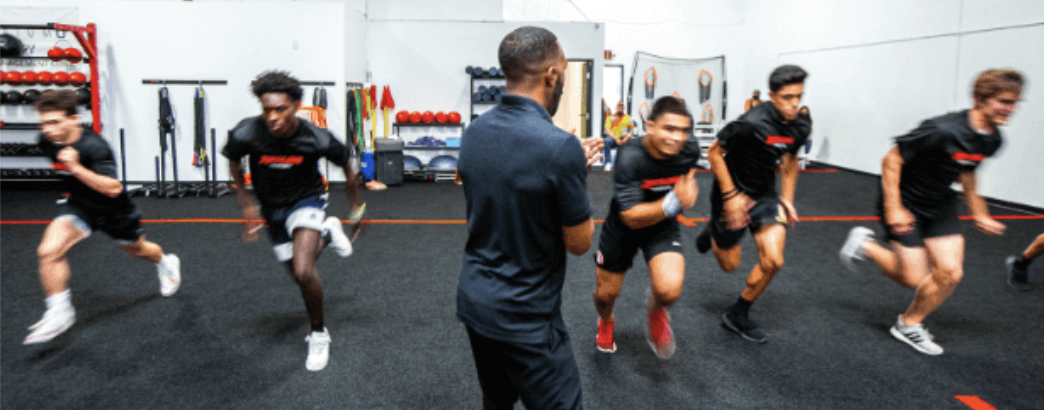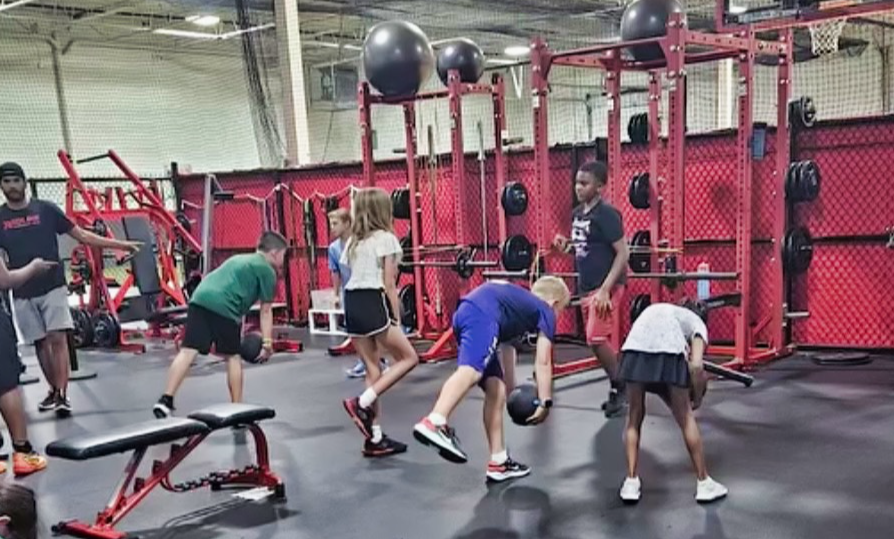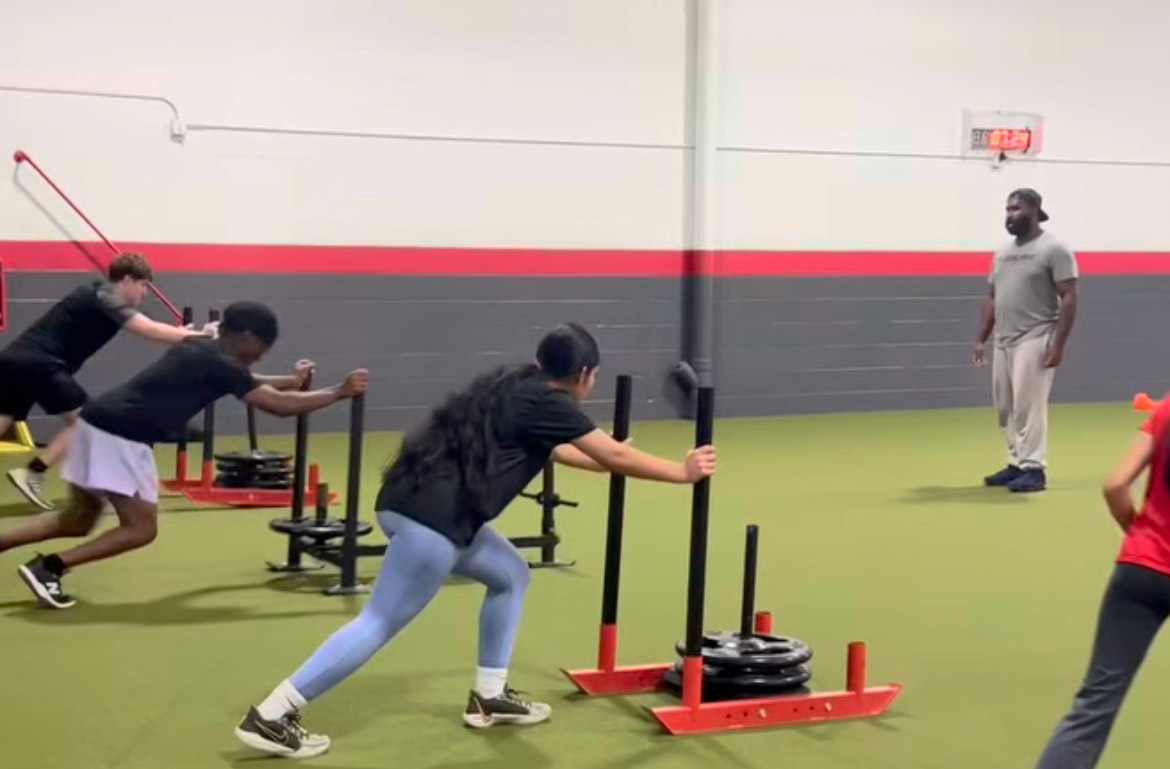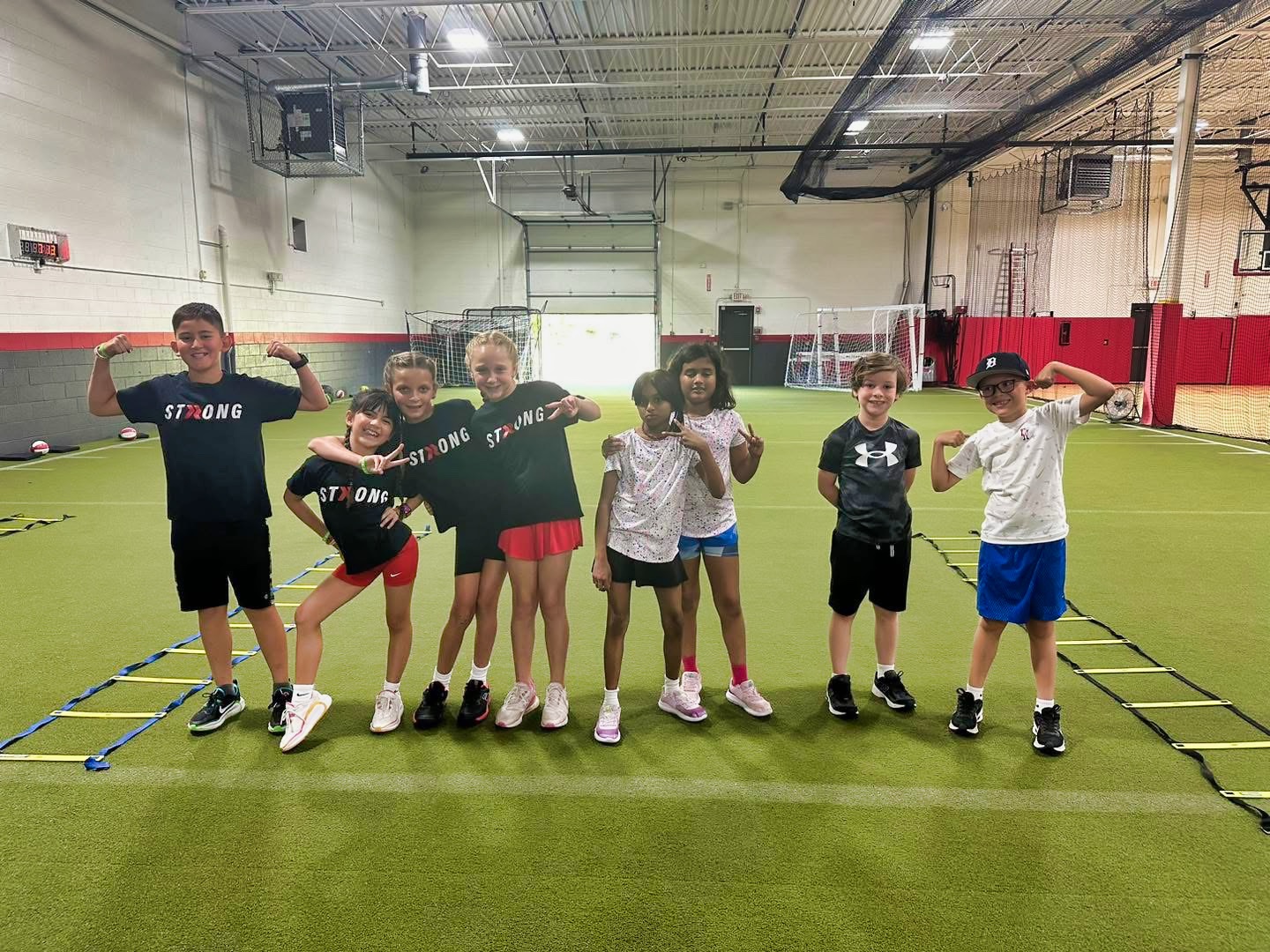
As youth sports continue to evolve, the integration of technology and performance data is transforming how young athletes train, develop, and succeed. Understanding the importance of measurable outcomes and personalized programming ensures youth athletes are not only improving but doing so safely and sustainably.
What You'll Learn
The fundamentals of data-driven youth athletic training
How personalized athlete training enhances performance and reduces injury risk
The role of technology and data analytics in youth athlete development
Expert insights from Christian Cullen of Redline Athletics
Practical tips for parents and coaches to support young athletes
Overview of Data-Driven Youth Athletic Training
In the modern landscape of youth athletics, data-driven youth athletic training has emerged as a vital methodology. It integrates scientific measurements and performance analytics to tailor training programs that fit each athlete’s unique needs. This approach transcends conventional training by grounding progress in measurable metrics rather than subjective observation alone.
Christian Cullen, of Redline Athletics, explains, "We rely on data to tell us exactly where athletes are improving and where they need more focus, allowing us to refine training programs for maximum effectiveness." This philosophy enables trainers to monitor development accurately, adjust training intensity, and prioritize injury prevention.
Definition and significance of data-driven youth athletic training: Utilizes concrete data to enhance training impact.
How data enhances athlete development and performance training: Empowers informed decision-making and individual optimization.
The integration of performance testing and movement efficiency assessments: Provides comprehensive insights into biomechanical strengths and weaknesses.
What is a Data-Driven Training?
Term |
Definition |
Application in Youth Athletics |
|---|---|---|
Data-Driven Training |
Using measurable data to guide training decisions |
Customized athlete development plans |
Performance Testing |
Assessing speed, agility, strength, and endurance |
Tracking progress and injury prevention |
Movement Efficiency Assessment |
3D analysis of athlete biomechanics |
Identifying injury risks and correcting form |

Speed and Agility Development
Strength and Power Training
Endurance and Conditioning
Injury Prevention and Recovery
Character and Confidence Building
These five core elements form the foundation of holistic youth athlete development. Redline Athletics focuses equally on physical capabilities and mental resilience, nurturing well-rounded athletes prepared for competitive sports and life challenges.
Christian Cullen emphasizes, "Our program focuses not only on physical development but also on character traits like integrity and courage, which are essential for long-term success." This character-driven approach sets young athletes on paths of sustainable growth beyond the sports arena.
How Can Data Be Used in Athletics?
Tracking individual progress with pre- and post-performance tests
Adjusting training intensity based on movement efficiency scores
Providing instant feedback through member apps
Identifying and mitigating risk of injury through biomechanical data
Balancing Performance Training and Injury Prevention
Balancing high performance with safety is critical in youth athlete programs. Christian Cullen details Redline Athletics’ strategy using technology to preempt injury risks effectively. Their DEMOTU 3D Movement Efficiency Assessment evaluates each athlete's biomechanics to detect vulnerabilities that could lead to injury.
This assessment guides personalized intervention plans, including corrective exercises and home protocols tailored to individual needs. Progressive resistance training is carefully managed to ensure safe form, adapting load and complexity as athletes mature and improve.
"Our goal is proactive injury prevention so athletes can avoid long rehabilitation periods and stay resilient," states Christian Cullen.
Risk of Injury and Injury Prevention Strategies
Use of DEMOTU 3D Movement Efficiency Assessment to identify weaknesses
Customized corrective exercises and home protocols
Progressive resistance training tailored to age and skill level
Emphasis on safe technique to build resilience

Redline Athletics prioritizes individualized coaching in a supportive environment. Small class sizes with low athlete-to-coach ratios allow trainers to customize exercises and attention to each child’s needs and goals. Training modalities are aligned with age, skill level, and personal development objectives.
Christian Cullen shares, "We treat every athlete the same, regardless of their starting point, focusing on their individual goals and progress." Beyond physical fitness, character building and mental resilience are integral, shaping athletes’ confidence and perseverance.
Semi-private classes with low athlete-to-coach ratios
Age and skill-level appropriate training modalities
Incorporation of character development and mental resilience
Flexible membership options to accommodate family schedules
Addressing Modern Challenges: Screen Time and Sedentary Lifestyles
In an era dominated by screens, children face increasing sedentary lifestyles and reduced outdoor play. Redline Athletics offers an engaging alternative that reintroduces movement and social interaction. The program encourages youth to embrace physical discomfort as a growth opportunity crucial to resilience.
Christian Cullen articulates, "This program helps kids get out of the household screen environment and into a fun, active experience that builds lifelong habits of confidence and healthy living."
Creating engaging, movement-focused environments away from screens
Encouraging healthy habits through social interaction and physical challenge
Teaching youth to embrace discomfort as a growth opportunity
Building lifelong habits of resilience and confidence
Supporting Parents in Their Child’s Athletic and Wellness Journey
Communication and partnership with parents are vital for maximizing athlete success. Christian Cullen describes how Redline Athletics collaborates closely with families to set realistic goals, manage expectations, and ensure transparency regarding progress and training commitment.
A unique recognition and reward system celebrates character development milestones, reinforcing positive behaviors and effort, which further motivates young athletes.
Collaborative goal setting with parents and athletes
Transparent communication about training expectations and progress
Recognition and reward systems for character and effort
Providing resources and flexibility to fit family needs
People Also Ask
What is a data driven training?
Data-driven training uses measurable performance data to guide exercise programming, ensuring each athlete’s development is based on objective feedback rather than guesswork. This approach customizes workouts to optimize improvements and prevent injury.
What are the five pillars of athletic training?
The five pillars are speed and agility development, strength and power training, endurance and conditioning, injury prevention and recovery, and character and confidence building. Together, they create a comprehensive foundation for youth athlete development.
How can data be used in athletics?
Data can be used to track progress through pre- and post-performance tests, adjust training based on movement efficiency scores, identify injury risks, and provide real-time feedback to motivate athletes and refine training strategies.
How often should youth athletes train?
The frequency depends on the athlete’s goals and schedule, but consistent training—typically multiple sessions a week—is essential for measurable progress. Redline Athletics offers flexible membership options to accommodate varying needs and commitments.

Data-driven youth athletic training enhances measurable performance improvements.
Injury prevention is integral through personalized assessments and corrective training.
Holistic development includes physical, mental, and character growth.
Flexible, personalized programs accommodate diverse athlete needs and family schedules.
Parental involvement and clear communication are critical for athlete success.
Conclusion
Christian Cullen concludes, "Our mission at Redline Athletics is to build resilient youth athletes who carry the lessons of discipline, confidence, and health into every aspect of their lives."
Investing in data-driven youth athletic training today means nurturing the champions and healthy adults of tomorrow.
Get Started with Data-Driven Youth Athletic Training Today
Call us at: (947) 941-4491
Visit our website for more information: https://redlineathletics.com/farmingtonhills/
Book a free, no-obligation session to experience our program firsthand
 Add Row
Add Row  Add
Add 




Write A Comment